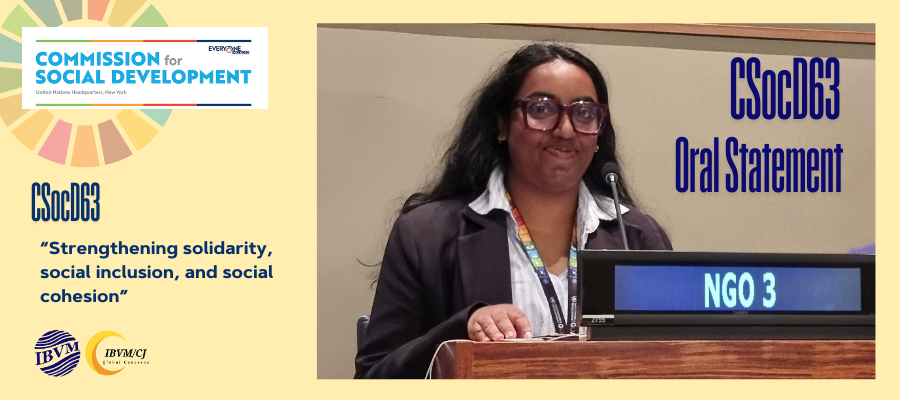We were given the opportunity at the 63rd Session of the Commission on Social Development to intervene and deliver an Oral Statement on the theme of “Strengthening solidarity social inclusion and social cohesion.”
Our youth representative Jenalle Anthonypillai wrote and delivered our intervention. We highlighted the fact that to build true solidarity, foster social inclusion, and strengthen social cohesion, gender inequality must be confronted head-on. Unfortunately, it is a critical factor underpinning systemic disparities across education, health, the economy, and culture—barriers that perpetuate division, marginalization, and poverty.
Furthermore, minority and marginalized communities often bear the brunt of institutional discrimination and corruption, deepening their social isolation. These inequalities are interlinked; addressing even one can spark broader social transformation, breaking down entrenched divisions and opening pathways to development.
Education stands at the heart of this change. Yet its power is often undermined by poor health, food insecurity, and economic hardship—conditions that stifle learning and limit opportunity for both children and adults. These challenges form a vicious cycle, where lack of access in one area restricts progress in others, making true social inclusion elusive.
- Our recommendations to the United Nations and its Member States were:
Expand education, healthcare, and vocational training for the youth and prioritize policies that equip them to contribute meaningfully to society. - Organise the reformation of the global financial system in order to achieve the Sustainable Development Goals in an attainable manner.
- Create new spaces if systems can’t be changed for marginalised and vulnerable communities to be involved in education, health and the economy.
Read the full statement HERE.
Watch Jenalle deliver the statement HERE.

